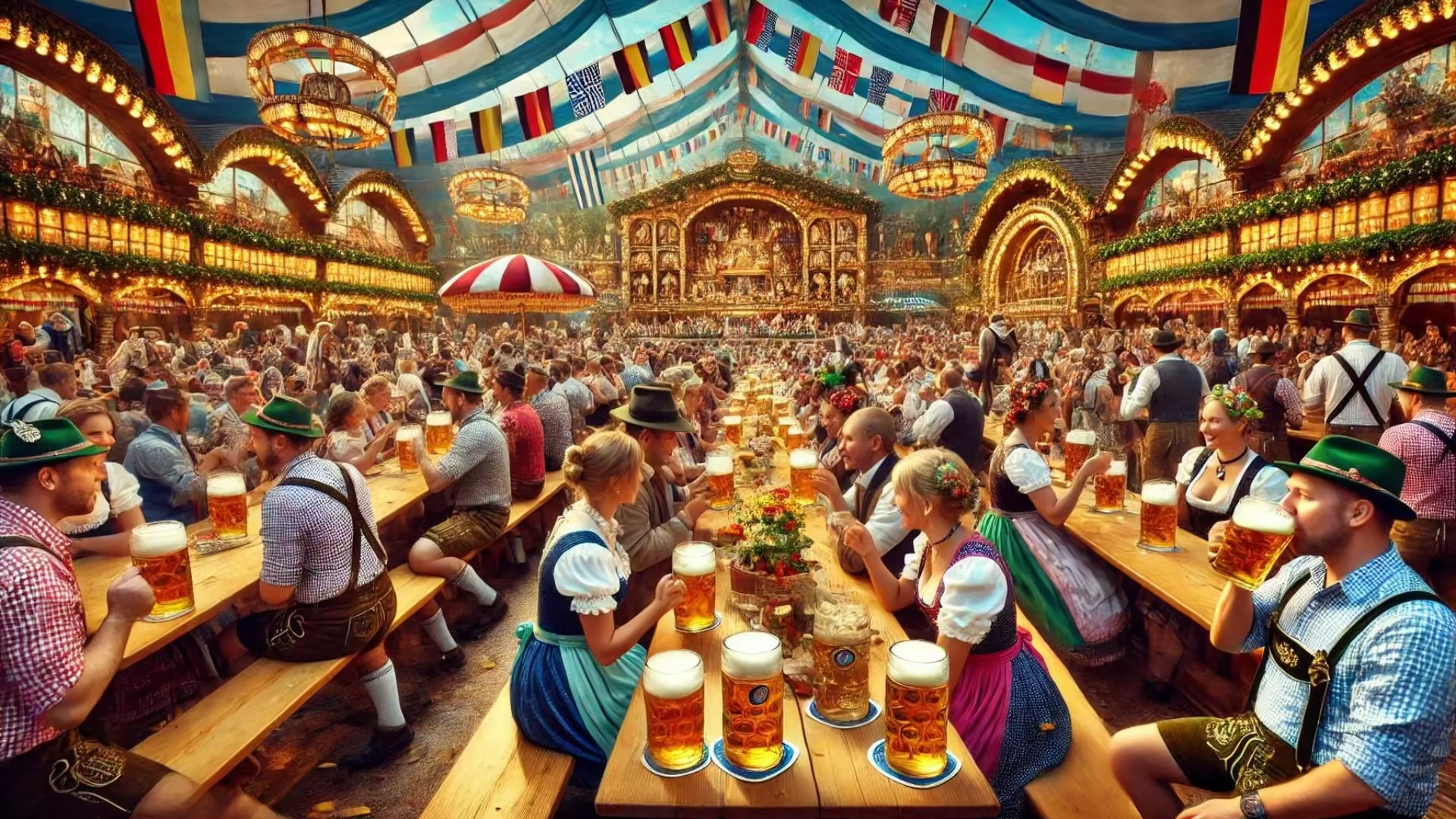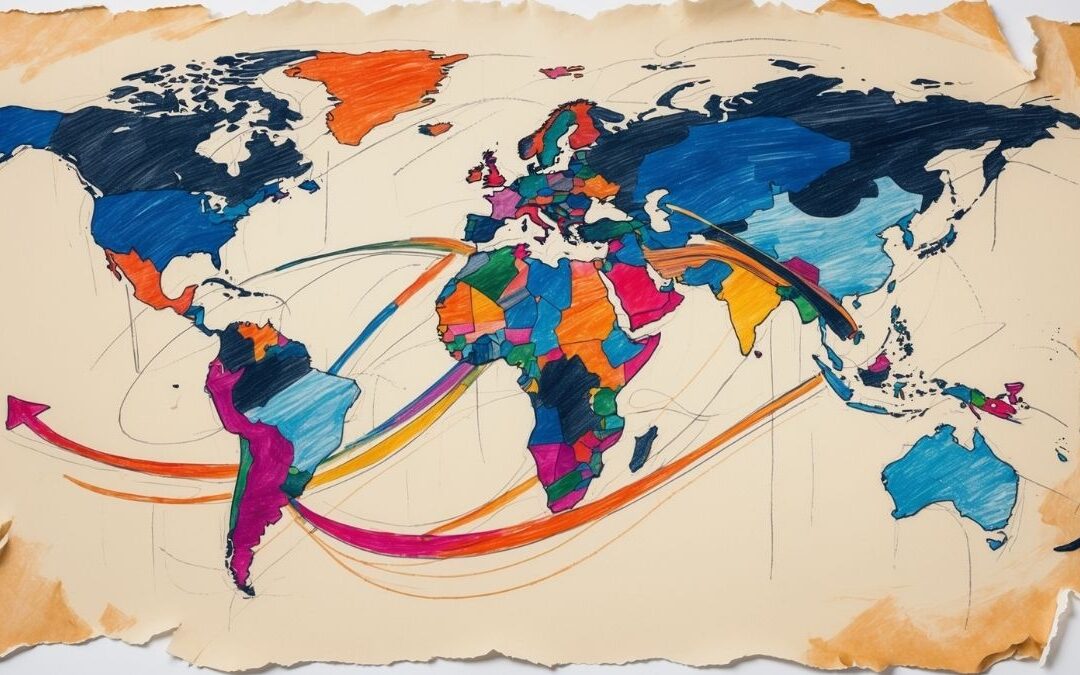Germany’s beer festivals, particularly the world-renowned Oktoberfest, are more than just celebrations of beer; they are cultural institutions that reflect the nation’s history, values, and social traditions. For many, these festivals are synonymous with German culture, but their significance goes far beyond the frothy steins of beer. They are about community, heritage, and the shared joy of coming together.
The History and Tradition Behind Beer Festivals
Germany’s beer festivals have deep historical roots. Oktoberfest, for example, began in 1810 as a celebration of the marriage between Crown Prince Ludwig and Princess Therese of Saxe-Hildburghausen. What started as a royal event quickly became an annual tradition, growing in scale and importance. Over time, other regions in Germany developed their own beer festivals, each with unique traditions and flavors.
These festivals are steeped in centuries-old brewing traditions that vary from region to region. For instance, the Bavarian Purity Law of 1516, or Reinheitsgebot, which dictated that beer could only be made from water, barley, and hops, still influences brewing practices today. Understanding the history of these festivals offers insight into how important beer is to German identity.
Beer Festivals as a Cultural Experience
Attending a German beer festival is more than just about the beer; it’s about immersing yourself in the culture. The traditional attire, such as lederhosen for men and dirndls for women, adds to the festive atmosphere. These outfits aren’t just costumes; they symbolize regional pride and a connection to heritage.
Music plays a crucial role in these festivals. Brass bands perform traditional German folk songs, encouraging people to dance, sing, and celebrate together. These communal experiences create a sense of belonging and highlight the importance of music in German culture.
Food, too, is a vital component of these festivals. From pretzels and sausages to hearty dishes like pork knuckles, the cuisine reflects Germany’s rich culinary traditions. The pairing of food and beer enhances the cultural experience, showcasing how these festivals are about savoring life’s simple pleasures.
The Social Importance of Beer Festivals
While beer is a central element, the social significance of these festivals cannot be overstated. They provide an opportunity for people from all walks of life to come together and celebrate. In a world where social connections are increasingly digital, these festivals offer a chance to experience community in a tangible way.
In many small towns across Germany, local beer festivals serve as a focal point for community life. They foster connections among neighbors, strengthen local identity, and promote a sense of belonging. These gatherings remind us of the importance of tradition in maintaining social cohesion.
For tourists, attending a German beer festival can be a way to connect with the local culture on a deeper level. It’s an opportunity to experience the warmth and hospitality of the German people and to understand the values that underpin their way of life.
The Global Influence of German Beer Festivals
German beer festivals have also influenced celebrations worldwide. Events modeled after Oktoberfest can be found in cities across the globe, from Munich to Melbourne. These festivals have become a symbol of German culture, representing a blend of tradition and celebration that appeals to people everywhere.
However, it’s essential to recognize that these global festivals often differ from their German counterparts in terms of cultural depth. While they may capture the fun and festivity, the connection to tradition and community that defines German beer festivals is often less pronounced.
Applying What You’ve Learned
Understanding the cultural significance of Germany’s beer festivals allows you to appreciate them as more than just large parties. They are celebrations of history, tradition, and community that play a vital role in the cultural life of Germany. Whether you attend a festival in Germany or one inspired by it elsewhere, take a moment to reflect on the deeper meanings behind the festivities.
The next time you participate in a cultural event, whether it’s a beer festival or another traditional celebration, engage with the history and traditions behind it. By understanding the cultural importance of these events, you can connect more deeply with the experience and the people around you. Celebrate not just the moment but the shared heritage that makes these events meaningful.
Expand Your Vocabulary
- Cultural Institutions: A term that refers to traditions or practices deeply embedded in a society’s way of life. In the article, German beer festivals are described as cultural institutions because they are integral to the country’s identity. In everyday English, you might use this term to describe anything that plays a vital role in a culture, like public libraries or national holidays. For example, “Thanksgiving is a cultural institution in the United States, celebrated by families across the nation.”
- Reinheitsgebot: Known as the Bavarian Purity Law, this term refers to a regulation that dictated the ingredients of beer in Germany. It’s an example of how specific terms from history can carry significant cultural meaning. While you may not use this word daily, understanding it can enrich your discussions about food and drink laws or traditions. For instance, “The Reinheitsgebot shows how seriously Germans take their beer brewing traditions.”
- Heritage: This word refers to the traditions, achievements, and beliefs passed down from previous generations. In the context of beer festivals, heritage is seen in traditional clothing and music. You can use it in everyday life to talk about your family’s customs or national traditions. For example, “Our family heritage includes making a special dish during the holidays.”
- Communal: This adjective describes something shared by a group of people, often within a community. In the article, communal experiences at beer festivals emphasize the importance of togetherness. In everyday use, communal can describe shared spaces, resources, or experiences. For instance, “The communal garden is a place where neighbors can grow vegetables together.”
- Cohesion: This word refers to the action or fact of forming a united whole. The article discusses how beer festivals promote social cohesion in communities. In your daily conversations, you might use cohesion to talk about teamwork or family unity. For example, “Strong communication is key to maintaining cohesion in any team.”
- Tradition: A practice or custom that is passed down from generation to generation. The article highlights how beer festivals are steeped in tradition. In everyday English, tradition can refer to anything from holiday celebrations to rituals within a group. For example, “It’s a family tradition to decorate the Christmas tree together.”
- Steeped: This term means to be deeply influenced by or filled with something. The article uses it to describe how beer festivals are steeped in history and tradition. You can use this word to describe something rich in quality or influence, such as, “The town is steeped in history, with buildings dating back hundreds of years.”
- Fostering: This word means to encourage or promote the development of something. The article mentions how beer festivals foster connections among people. In everyday use, you can use fostering to describe efforts to support growth, like, “The school is fostering a love of reading in its students.”
- Culinary: Relating to cooking or the kitchen. The article refers to the rich culinary traditions found at beer festivals. You can use this word to describe anything related to food and cooking, such as, “She enrolled in a culinary school to become a professional chef.”
- Globalized: This term refers to the process by which businesses or other organizations develop international influence or start operating on an international scale. The article talks about how German beer festivals have influenced celebrations worldwide in a globalized world. In daily language, you might talk about how globalization affects culture, trade, or communication, like, “The globalized economy allows us to enjoy products from all over the world.”
Let’s Talk
- Cultural Significance: How do you think festivals and traditions in your culture compare to Germany’s beer festivals? What events or practices in your culture bring people together in a similar way?
- Global Influence: Have you ever participated in a cultural festival that originated in another country? How did that experience help you understand or appreciate that culture more deeply?
- Tradition vs. Modernity: In an increasingly modern and globalized world, how important is it to maintain traditional practices like those seen in German beer festivals? Can tradition and modernity coexist, or do you think one will eventually overshadow the other?
- Community Engagement: Do you think local festivals and events in your community foster the same sense of belonging and social cohesion as beer festivals do in Germany? How might we strengthen community bonds through such events?
- Cultural Heritage: How does understanding the history and heritage behind a cultural event enhance your experience of it? Can you think of a time when knowing the background of a tradition made it more meaningful for you?
- Food and Culture: How important do you think food is in celebrating culture and tradition? What are some traditional foods in your culture that play a significant role in festivals or gatherings?
- Tourism and Authenticity: Do you think festivals that become globalized, like Oktoberfest, lose some of their authenticity? How can we balance the desire for cultural exchange with the need to preserve the original spirit of such events?
- Cultural Institutions: What are some cultural institutions in your society that you think are essential to preserve? Why are they important to you and your community?
- Personal Connection: Have you ever felt more connected to your heritage through participating in a festival or event? What was the experience like, and how did it impact your sense of identity?
- Festivals as Learning Opportunities: How can attending cultural festivals serve as educational experiences, not just for locals but for visitors from other cultures? What can we learn from immersing ourselves in another culture’s traditions?
These questions are designed to deepen your understanding of the cultural significance of Germany’s beer festivals and encourage thoughtful conversations. Share your thoughts with others, and see how different perspectives can enrich your appreciation of these rich cultural traditions.










0 Comments